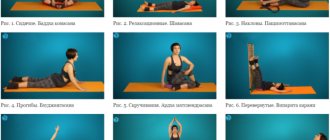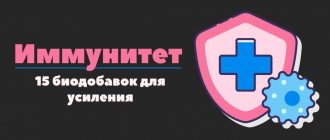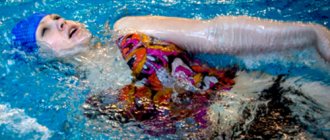Consultation for parents “How to protect your child from viruses”
Irina Bashtannik
Consultation for parents “How to protect your child from viruses”
During the season of exacerbation of viruses, people with weakened immune systems are at risk of illness, and this is especially high when regularly visiting public places. To prevent exposure to infections, many people engage in prevention, and parents worry about how to protect their child from viruses in the garden .
How to prevent infections?
Of course, treating a cold or a serious illness is much more difficult than preventing and strengthening a child’s .
In addition, frequent illnesses significantly undermine the child’s , and parents do not always approve of frequent sick leave at work.
A separate issue is the material aspect - it is always cheaper to purchase preventative medications than medications for treatment.
Maintain hygiene.
Since all measures to protect a child from diseases are a complex, in order to achieve effectiveness it is necessary to carry out all its aspects. One of them is hygiene. Many scientists have worked on research in this area and have proven the following fact. Many people believe that infections are transmitted by airborne droplets, and all colds have an impact by entering the body through the mucous membranes. However, scientists have long supported this opinion with the statement that this kind of infection is transmitted by contact. It is necessary to teach your child to constantly wash his hands : after going outside, after animals, using the toilet, before eating, and so on. Especially monitor this habit during an exacerbation of viruses .
Start to harden the child .
In order to avoid frequent illnesses, it is recommended to strengthen the child’s . How to do this without medications? Using hardening. Gradually, you can accustom your child to cooler temperatures in the apartment and take baths in cooler water than usual. You should not douse with ice water according to the general stereotype - this is not a hardening measure, and due to hypothermia, the child, on the contrary, can become hypothermic.
If it’s cool time outside, it is recommended to go for a walk more often and spend more time in the fresh air. Moreover, you should not wrap your child in very warm clothes; it is enough to select outerwear according to the weather, in which the child will not freeze or sweat. Cases where children caught a cold because they were sweating and were blown by the wind occur much more often than if the child was dressed for the weather .
Physical exercise.
Any healthy lifestyle involves playing sports. It doesn't have to be anything complicated. It is enough to simply develop a child in the direction of sports. You can do it at home, do exercises with your child , or come up with an interesting workout in a playful way. You can also send your child to a sports section ; there are many centers that work with children from a very young age. The set of exercises there is designed specifically for a certain age of children, taking into account all their capabilities.
Proper nutrition and vitamins for a child .
Proper nutrition involves healthy foods enriched with vitamins, which constitute a balanced diet. You need to monitor the child’s nutrition , find out what he is fed in kindergarten, and supplement this complex at home. Particular attention should be paid to such things in winter and during the spring period of vitamin deficiency, when the majority of the body is weakened
Child protection measures .
There are some additional tips for protecting your child from viruses in kindergarten .
• Use of oxolinic ointment. Many people have probably heard about its miraculous properties. During an exacerbation of viruses , both adults and children use oxolinic ointment; it protects the nasal mucosa from infection, and if the initial signs of a cold have already appeared, it promotes a speedy recovery.
• Consuming vitamin C. A well-known method for colds and their prevention. Eat more citrus fruits, but do not overdo it, so that the child does not develop an allergy. You can also take medications containing this vitamin.
• Use onions and garlic for prevention. They are excellent at killing germs, including those in the air, so you can simply leave the chopped onion in the room. If you don’t like the smell of onions, aroma lamps and eucalyptus oils are suitable; they also have a cleansing effect.
• Regular ventilation. Fresh air will not bring new diseases; it is much worse to breathe stale air full of germs.
• Consuming honey. It can be added to tea, eaten with nuts or porridge, or simply given to the child without any additives .
If the child does get sick , it is important to carry out the treatment to the end, without rushing to stop it as soon as possible if the main symptoms have passed. If colds are not treated completely, the risk of developing chronic diseases increases sharply.
Viral infection in children: psychological factors
Children are not always able to independently assess their state of the nervous system. They may not realize that the body is under stress. You need to be extremely careful, since regular stress and fatigue significantly reduce immunity.
If a child has problems at school, or doesn’t like going to music or wrestling, then his risk of catching the virus is much higher. Through illness, the body lets you know that it is time for a person to rest. In this case, it is important to find out from the child what upsets him in order to improve his emotional and psychological comfort.
Of course, it is impossible to isolate children for the entire duration of viral epidemics. But you can protect your child from diseases on your own if you carry out preventive measures comprehensively. The main thing is to do this constantly and consistently.
On recommendations on how to protect children from coronavirus during the period of lifting restrictions
Home — For the public
- Map of medical organizations
- Vaccination
- Clinical examination
- Fluorography
- Addresses and opening hours of clinics
- Emergency rooms
- Oncology
- Where to take an HIV test
- Healthy child's office
- Services
- Prevention of CVD
- Disease Prevention
- World Patient Safety Day
- Newspaper "Medical News"
- specialist
- School of Health
— Disease prevention
- HIV infection
- All about vaccination
- All about proper nutrition
- Hepatitis
- Flu
- Dementia
- Schoolchildren's health
- Tick-borne encephalitis
- Whooping cough
- Measles
- Legionellosis
- Meningococcal infection
- Oncology
- Acute intestinal infection (AI)
- Pediculosis
- First aid
- Pneumococcal infection
- Pneumonia
- Prevention of rabies
- Dependency Prevention
- Rotavirus infection
- Diabetes
- Cardiovascular diseases
- Injuries
- Tuberculosis
- Tularemia
- Physical activity - a healthy future
- Chronic obstructive pulmonary disease
- Exotic infections
- Ecology
- Why is swimming in ponds dangerous?
- Flu
- How to protect yourself from coronavirus infection
- Where to get vaccinated in Yekaterinburg
- Where to get vaccinated in the Sverdlovsk region
- How to get vaccinated without stress
- 5 main questions about the flu
- Answer to the most common complaint
- Frequently asked questions about the flu
- Getting a flu shot: 3rd trimester
- If you were in the place of a scientist
- Appeal to parents
- How to protect yourself from the flu?
- Prevention measures
- Rules for wearing a mask
- Flu prevention
- Prevention of influenza in children
- Complications after the flu
- Prevention for sick people
- Prevention for healthy people
- What to do about symptoms
- What to do if you have the flu at home
- Sneezing
- Diet for immunity
- Diet for colds
- Hardening
- Means for the prevention and treatment of influenza
- How to avoid getting the flu when you're sick at home
- Flu symptoms and treatment
- Flu 2019-2020
- Weakness after the flu
- How to properly harden the body
- Temperature with flu
- How to avoid getting the flu during an epidemic
- Complications of influenza
- What to do if your child gets the flu?
— How to protect yourself from coronavirus infection — How to protect children from coronavirus
For the attention of parents and employees of child care institutions.
We introduce you to the recommendations of Rospotrebnadzor on the protection of children from coronavirus infection, posted on the departmental website on June 22, 2020.
On recommendations on how to protect children from coronavirus during the period of lifting restrictions
Currently, there is a gradual decrease in the number of newly infected people, however, the numbers remain quite high, so it is necessary to take measures to prevent infection, including for children. In hot and warm weather it is impossible to do without walking. Children need to go outside, but it is necessary to explain what rules they must follow.
1. If possible, maintain social distance, preferably at least 2 meters. If the child cannot comply with it, then you need to try to provide a walk where there is no such close communication.
2. It is important to explain to children that under no circumstances should they touch their face, put their fingers in their mouth, touch their nose, or rub their eyes, because all of these are additional factors in the spread of infection.
3. Teach children from a very early age to observe the rules of personal hygiene. Cultivate a love of cleanliness by personal example. Wash your hands with soap more often, show your children how to do it correctly. Always wash your hands after walking with your child, playing, before eating and after using the toilet. Explain to children that dirty hands can become a source of infection or illness.
4. Children come into contact with the environment not only with their hands, but also with other open areas of the skin. They also need to be promptly disinfected after exercising, riding on slides, etc., and upon returning home it is recommended not only to wash your face and hands with soap, but also to take a shower.
According to sanitary and epidemiological requirements, disinfection of playgrounds should be carried out regularly, in the absence of children.
Of course, it is safer to play on such playgrounds treated with disinfectants, however, the level of safety depends on the number of children who are there at the same time.
How to walk properly when risks persist
It is necessary to maintain social distance and, if possible, wear masks and gloves, especially where there are many people walking. During a long walk, it is necessary to periodically treat your hands with disinfectants, especially after sitting on a bench, using exercise equipment, or children going down a slide.
Should you take your children with you to the store or public places?
Going with your child to a store or other public places creates a situation of additional risk of infection. It is better to leave children at home, or, as a last resort, under supervision on the playground.
Do children need to wear a mask?
It is not easy to put a mask on a small child, so for children under 7 years of age, the main recommendation is to maintain social distance.
Older children and teenagers must wear masks.
At the same time, we understand that during active movements, sports, especially in hot weather, the mask quickly becomes moisturized. It is difficult to breathe in such a mask, and it stops working as a protective agent.
Therefore, all children, regardless of age, need to stay away from those who are possible carriers of the infection, maintain distance and use disinfectants if they touch any surfaces.
Do children get sick with coronavirus?
Children also get sick with coronavirus infection, although, in general, according to statistics, fewer of them get sick. Children tolerate coronavirus infection much more easily; among them there are many asymptomatic carriers and erased forms of the disease. Therefore, in many children, coronavirus infection is not diagnosed, despite the fact that the pathogen is present. Such children turn out to be a source of infection much more often than adults, who are ill with pronounced symptoms.










